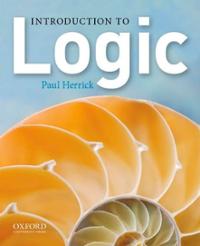Philosophy
361:
Syllabus
|

|

Syllabus: Introduction to
Symbolic Logic
PHIL 361 - SPRING 2014 - DR. KEITH A. KORCZ
How To Contact Professor Korcz:
My office is in H. L. Griffin Hall, rm. 563. My office hours are MWF
12:00 - 1:00, MW 2:15 - 4:15, and Th 12:00 – 3:00. We can also meet at
other times by arrangement - just ask. My office phone number is
482-6806. You can also contact me (or ask questions) by e-mail at
keithk@louisiana.edu.
Required Text:
Paul Herrick, Introduction
to Logic (Oxford University Press, 2013).

Assignments:
Exams:
There will be two exams, each worth 20% of your course grade, and a
cumulative final exam worth 30% of your course grade. The in-class
exams will consist primarily of short answer and multiple-choice
questions. However, all make-up exams will be primarily long-essay. The
exams will cover both lectures and assigned readings (material in
lectures and assigned readings will not always overlap). All exams are
closed book/closed note.
Quizzes:
30% of your course grade will consist of a combination of take-home
quizzes and in-class pop quizzes worth varying amounts of points. The
take-home quizzes will typically involve completing exercises such as
those in our textbook. The in-class pop quizzes will typically involve
similar exercises, and usually be preceded by an in-class
practice session of similar problems. These points add up very quickly,
and combined are worth three letter grades in the course, so you are
encouraged to devote sufficient time to do well on them.
Extra-Credit:
Each of the exams will include a few extra-credit questions, and a
limited number of quizzes will also be counted for extra-credit. The
maximum amount of extra-credit points for the quizzes altogether will
be 100 points for the course.
Grading:
The course grades will initially be determined according to the
standard scale, i.e., 90-100% = A, 80-89% = B, 70-79% = C, 60-69% = D,
59% and below = F, and then may be modified as follows: Course
grades might be curved, but, if so, the curve would not be such that
any student's grade is lowered. Such factors as improvement over the
length of the course, class participation, attendance, etc., may be
taken into consideration, especially where doing so may improve a
borderline grade. You must complete all three exams to receive a
passing grade (i.e., a grade other than F, NC or U).
Internet Resources:
The course home page
(http://www.ucs.louisiana.edu/~kak7409/361Home.html) contains links to
useful sites regarding the subject matter of the course, study aids,
the on-line syllabus, and other resources. A Moodle page will also be
created for this course.
You are also encouraged to visit my home page, which contains a link to
the home page for this class as well as hundreds of organized links to
research and philosophy oriented web sites and a section on how to
survive your first philosophy course, among other things, that you may
find interesting and useful. The address for my home page is
http://www.ucs.louisiana.edu/~kak7409.
Class Policies:
If you miss class, for whatever reason, it is your responsibility to
get class notes from another student. Missed exams or other assignments
can be made up only if an appropriate excuse, e.g., illness requiring
medical attention, participation in certain official university events,
etc., is provided. If you know in advance that you will miss an exam or
due date for an assignment, let me know beforehand. An unexcused late
assignment will be dropped 2/3 of a letter grade per day it is late.
Excused late assignments can only be made up if the instructor is
notified within one week of either the due date of the assignment or
the cessation of a medically documented persistent vegetative state.
Late quizzes will not be accepted once the answers have been given in
class. You may hand them in early or, as a last resort, submit them by
e-mail.
If you have a disability and require assistance with fulfilling class
assignments, don't hesitate to notify the instructor and the Office for
Services to Students with Disabilities at 482-5252.
Finally, be sure you are familiar with all university policies
described in the UL Undergraduate Bulletin. All assignments for this
class must be completed individually, and any instance of academic
dishonesty on any assignment will be sufficient to fail the course.
Emergency Evacuation Procedures:
A map of this floor is posted near the elevator marking the evacuation
route and the Designated Rescue Area. This is an area where emergency
service personnel will go first to look for individuals who need
assistance in exiting the building. Students who may need assistance
should identify themselves to the teaching faculty.
COURSE
CALENDAR & PLANNED READING ASSIGNMENTS
NOTE 1: Topics, readings and assignments are tentative and may be
changed.
NOTE 2: All chapter and page references are to the Herrick text.
January 20 - Martin Luther King Day - No Classes.
1. The Fundamental Concepts of Logic (Jan. 15 – Jan. 29)
a. Logic and Argument (Chapters 1 and 2; OPTIONAL BACKGROUND READING:
p. 451-466)
b. Two Types of Argument (Chapters 3, 4 and 5)
c. Logical Relations (Chapter 6)
2. The Components of Truth-Functional Logic (Feb. 3 – Feb. Feb. 12)
a. The Operators (Chapter 10)
b. Wffs and TL (Chapter 12)
c. Translation from English to TL (Chapter 13)
EXAM #1: WEDNESDAY, FEB. 12.
3. Truth –Tables (Feb. 17 – Feb. 26)
a. Truth Tables for The Operators (Chapter 14)
b. Testing for Logical Status (Chapters 15 and 17)
c. Testing for Validity (Chapter 16)
Monday, March 3 through Wednesday, March 5 -
Mardi Gras Holiday - No Classes.
Monday, March 17 - Advising for FA14 begins.
4. Natural Deduction in TL (March 10 – March 26)
a. The Simple Rules of Inference (Chapters 18 and 19; p. 401-402)
b. Two Complex Rules of Inference (Chapter 21)
c. Theorems and Replacement Rules (p. 446-451; Chapter 20)
EXAM #2: WEDNESDAY, MARCH 26.
5. Varieties of Logic (March 31 – April 2)
a. A Brief History of Logic
b. Extensions of and Deviations From Classical Logic
Friday, April 18 through Friday April 25 – Spring
Break - No Classes.
6. Predicate Logic (April 7 – May 2)
a. Variables, Constants and Quantifiers (Chapter 23)
b. Relational Predicates (Chapter 24)
c. Natural Deduction in Predicate Logic (Chapters 26 and 28)
d. Semantics and Predicate Logic (Chapter 27)
LAST DAY OF CLASSES: FRIDAY, MAY 2.
FINAL EXAM: THURSDAY, MAY 8, FROM 11:00 AM – 1:30 PM, IN REGULAR
CLASSROOM.
Some Helpful Tips:
1. On class evaluations, students often state that they would tell
friends planning to take this class that good class attendance and good
class notes are essential to doing well on the exams.
2. Keep up with the readings - they further explain and help you to
remember test material.
3. If you're having trouble understanding course material, do not
hesitate to discuss it with the instructor!
361 Home page
Dr. Korcz's Home Page



